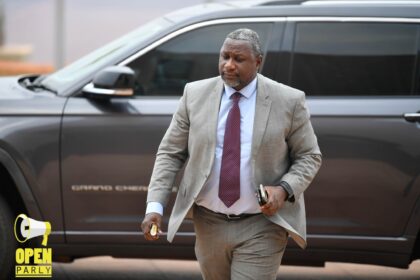Zimbabwe National Army Commander Anselem Sanyatwe ignited a political storm by overstepping his mandate to interfere in political affairs. In a speech to Nyanga North villagers, where his wife is the Member of Parliament, Sanyatwe asserted that the ruling Zanu PF party will rule Zimbabwe until donkeys grow horns, adding that, if necessary, they would enforce command voting through traditional leaders. This brazen assertion raised significant concerns about the impartiality of institutions that are supposed to be apolitical.
This is not the first time institutions that should remain apolitical have shown partisan behavior. Former Chiefs Council President Fortune Charumbira made similar remarks in favor of Zanu PF and defied a court ruling ordering him to retract his words. In 2002, then army commander General Vitalis Zvinavashe declared that the presidency was a “straight jacket” only for someone with liberation war credentials, referring directly to the late opposition leader Morgan Tsvangirai.
The military’s interference in Zimbabwean politics dates back to the liberation war and has become integral to Zanu PF’s dominance. Elections thus become ceremonial, offering no tangible change to any party except the ruling one. The military’s entrenched power means citizens’ enthusiasm for change is repeatedly stifled. As former presidential spokesperson Jelousy Mawarire pointed out, Zanu PF and the military are inseparable. The civilian leadership of Zanu PF is a façade; real power lies with the military.
Despite public outrage, Sanyatwe’s comments reflect a harsh reality: the military’s significant influence in Zimbabwean politics, as demonstrated in the November 2017 transition when the military intervened to force a political change. Sanyatwe’s statements invoke memories of the violent 2002 and 2008 elections and serve to intimidate and control the electorate. This is the continuation of the military’s role in perpetuating a “harvest of fear,” a critical factor in Zanu PF’s sustained power.
In light of Sanyatwe’s remarks, the opposition must reconsider its strategies. Despite President Mnangagwa’s claims of ushering in a new, democratic dispensation, the old power structures remain firmly entrenched. Elections under these conditions become mere formalities without real potential for change. The opposition needs to lobby the Southern Africa Development Community (SADC) and the international community to demand the military’s withdrawal from political affairs.
While some may justify the military’s involvement in politics, citing liberation history and foreign threats, the rampant corruption and looting undermine any claim of protecting national interests. If the military genuinely wants to protect national interests, they should target corrupt individuals like Wicknell Chivhayo, Kudakwashe Tagwirei, and Kenneth Raydon Sharpe, among others, who are looting the country’s resources. The people’s demand for change reflects their frustration with looting and corruption; thus, the military should either support them or lead the call for reform, as they did in November 2017.



